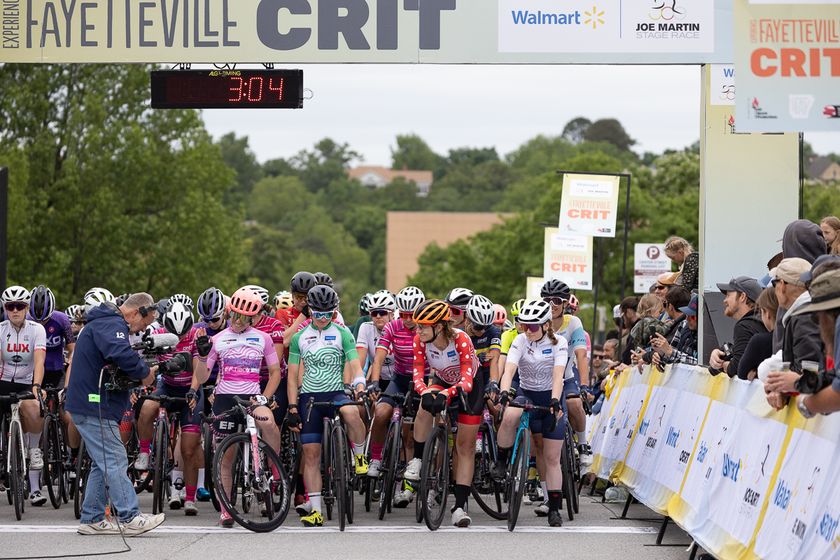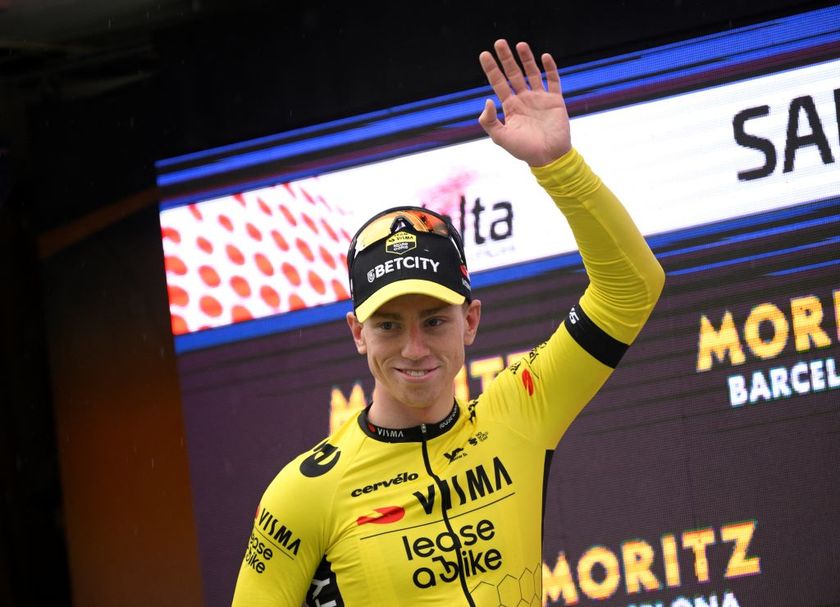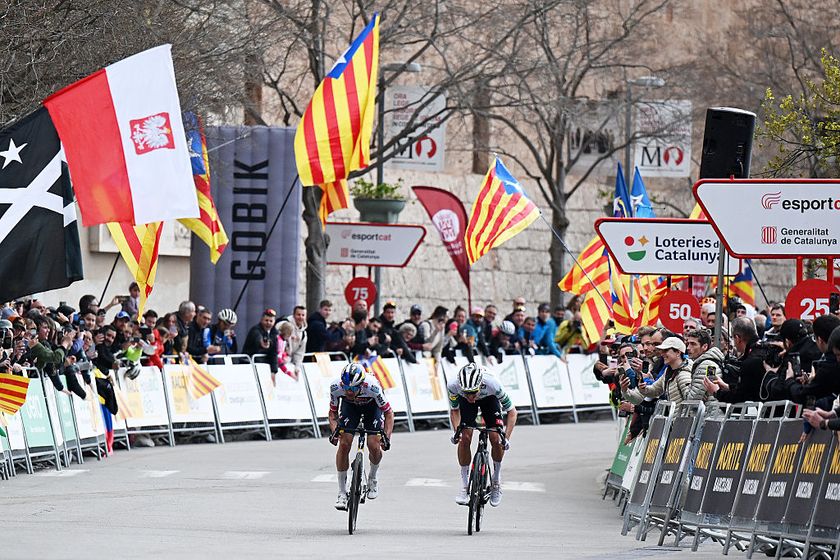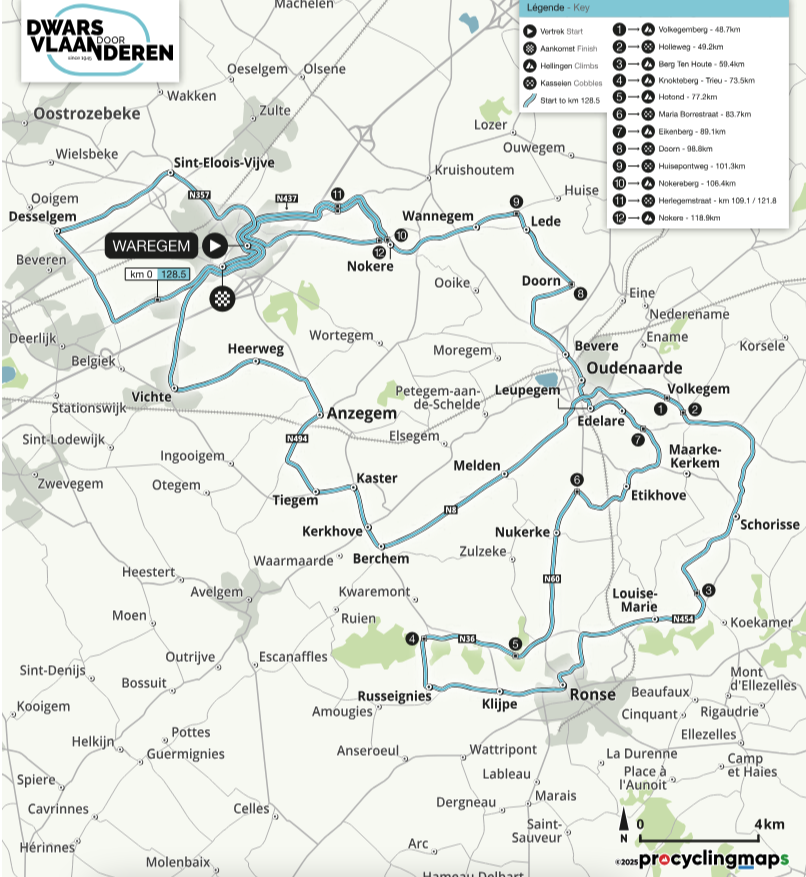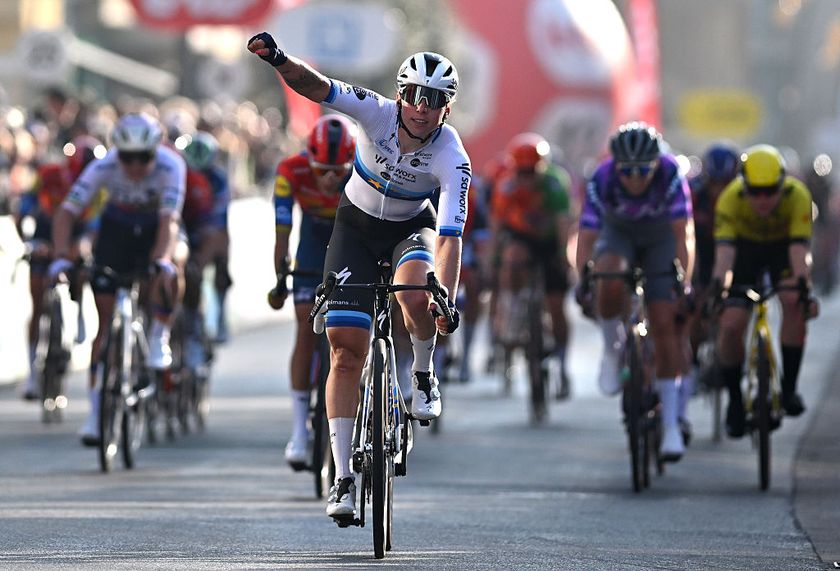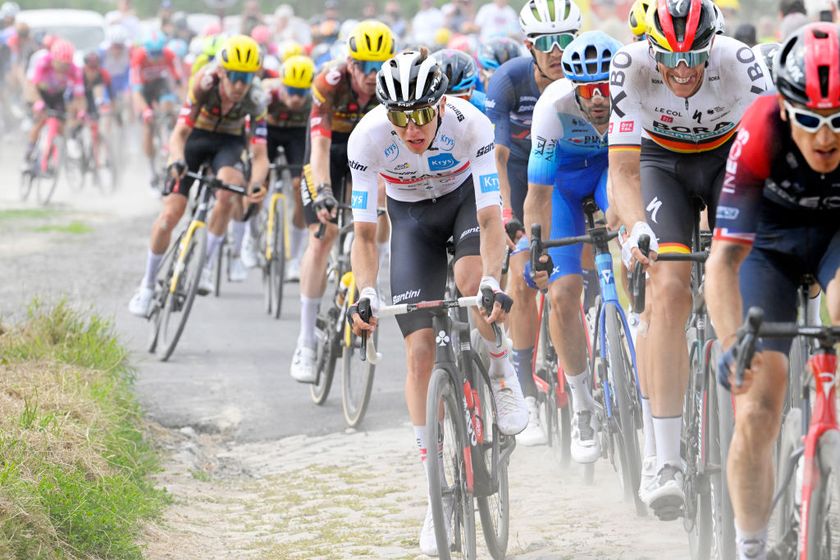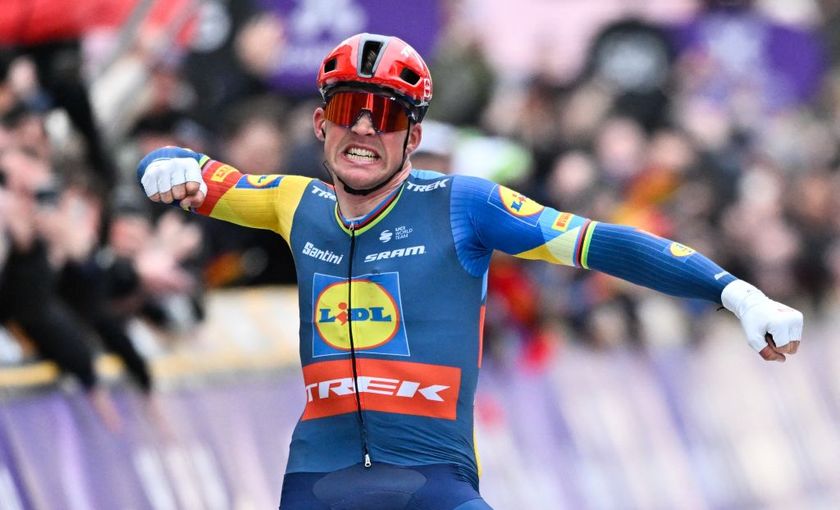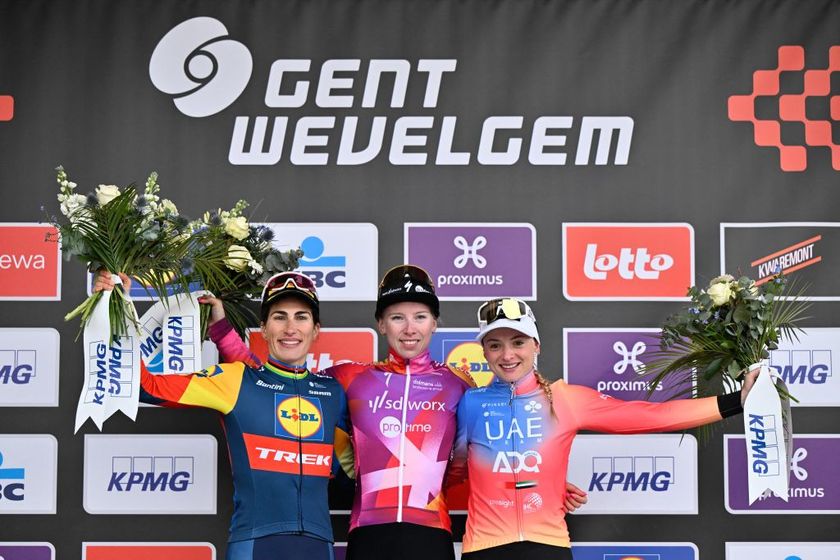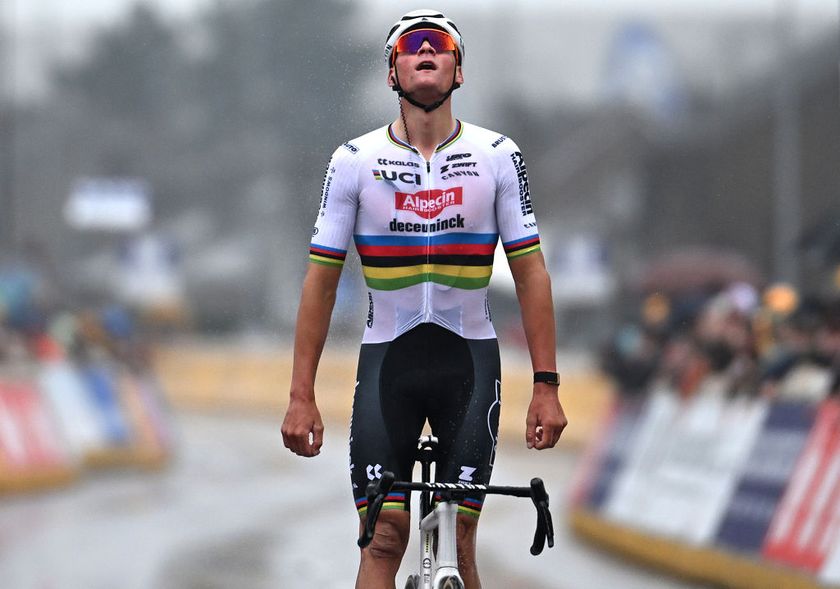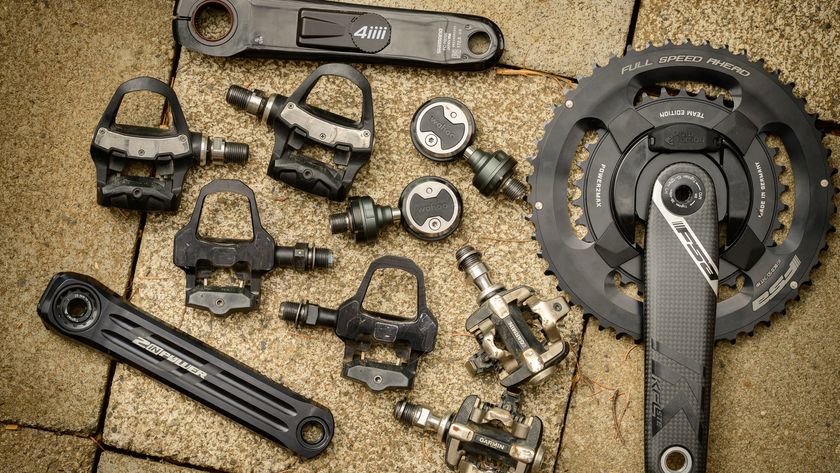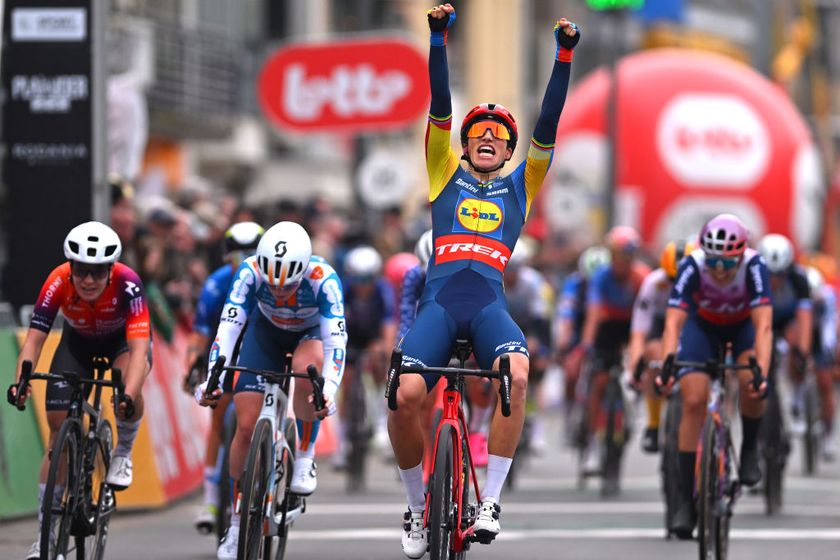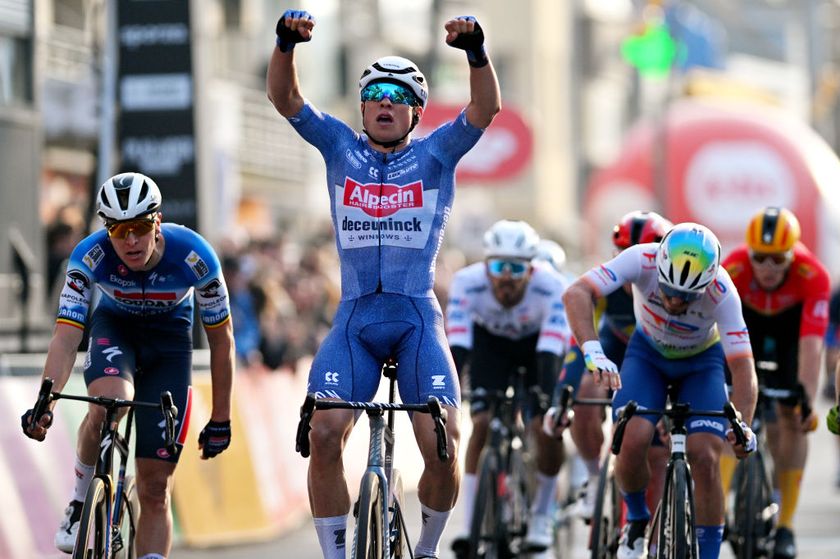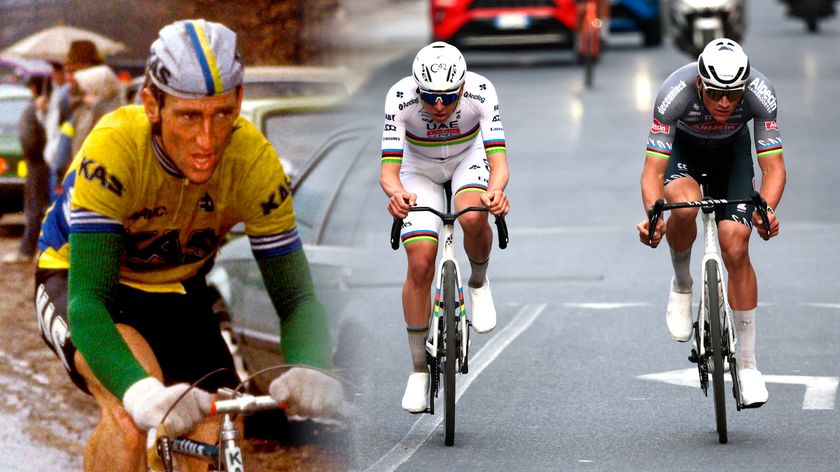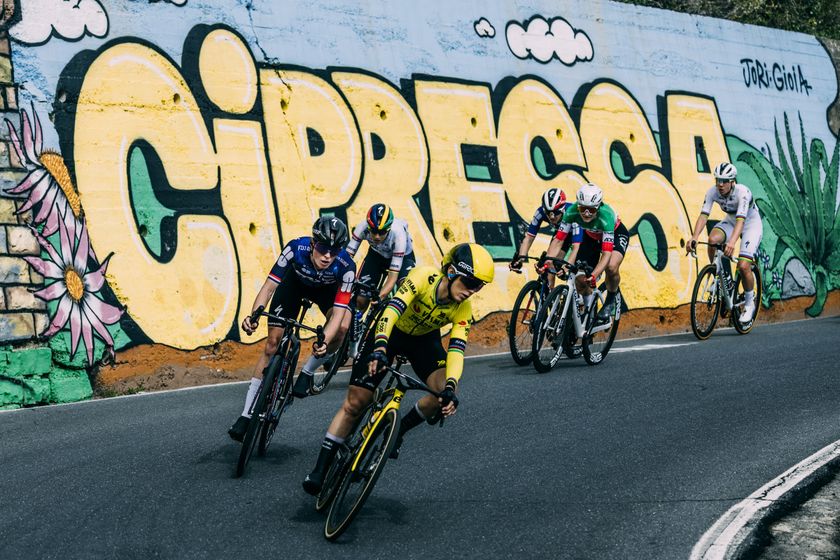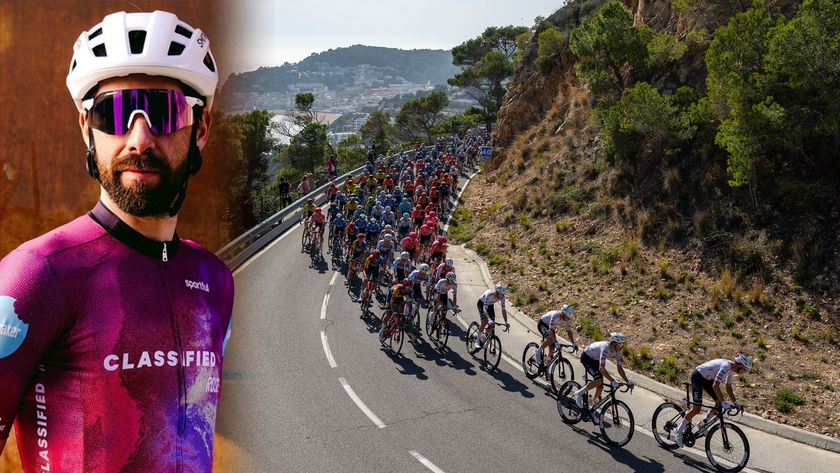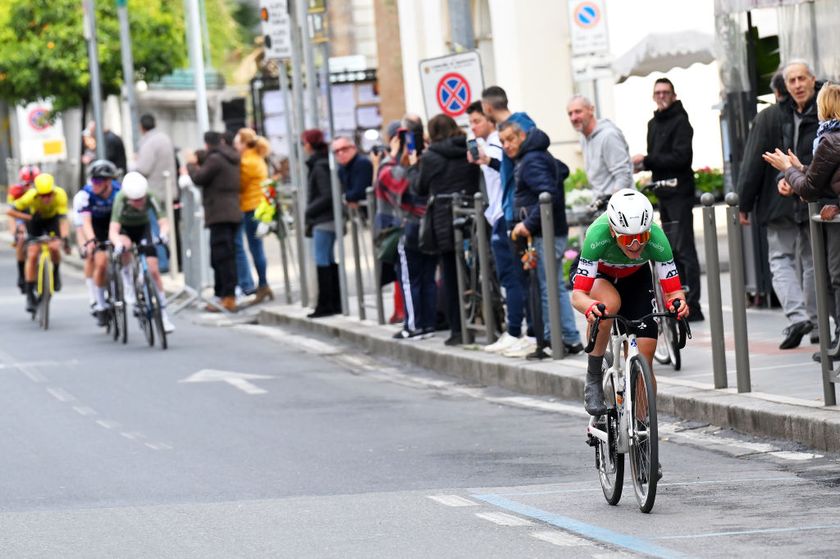Degenkolb: I believe that every cloud has a silver lining
German hoping to put disappointing 2017 behind him





John Degenkolb's two victories at the Challenge Mallorca have helped the German Classics rider put the disappointment, illness and near-misses of 2017 behind and to look to the spring of 2018 with new optimism.
With solid backing from many of the teammates who will ride with him between now and Paris-Roubaix, Degenkolb won the opening Trofeo Campos race on Thursday and then Sunday's Trofeo Palma, both with a well executed, high-speed sprint finish.
'Dege' is back and understandably thrilled to celebrate a successful start to the season with his Trek-Segafredo teammates after a meagre 2017.
"I believe that every cloud has a silver lining," the 29-year-old German tells Cyclingnews in an exclusive interview.
The German's own disappointments of 2017 reflected that of the Trek-Segafredo team. While Alberto Contador's retirement was a fairy tale ending, the US-registered WorldTour squad underperformed last season.
"We had a lot of podium spots in 2017 but in the end, only 18 wins. A team as important as Trek-Segafredo should be able to do better," Degenkolb says in agreement. "If we manage to finalise 50 per cent of our second spots from 2017, then we'll be pretty far up in the rankings.
"I think it's the first time I have won the first two races in a season," Degenkolb said on Sunday. "To have this feeling, which I missed so much last year and now I have it already twice… It's so nice to be in the winning line again."
Get The Leadout Newsletter
The latest race content, interviews, features, reviews and expert buying guides, direct to your inbox!
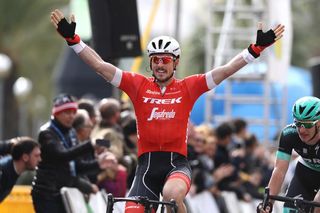
Winning counts so much, perhaps too much
Degenkolb has endured 24 months of disappointment as he fought his way back to the form and self-confidence that saw him win Milan-San Remo and Paris-Roubaix in 2015. Two years ago he and several of his then-Giant-Alpecin teammates were hit by a car while training in Spain. Degenkolb seriously injured a finger and was also left with mental scars from the accident and did not race until May.
He won some minor races on his return but never seemed back to his best and moved to Trek-Segafredo for a fresh start. He won stage 3 at the 2017 Dubai Tour and as Trek-Segafredo's Classics leader, went on to finish seventh at Milan-San Remo, fifth at Gent-Wevelgem, seventh at the Tour of Flanders and 10th at Paris-Roubaix.
He continued to rack up placings but failed to land a win on the big stage at the Tour de France. Things got worse in the late summer when he quit the Vuelta a España after four days and then needed time in the hospital to treat pneumonia. It meant that he missed the World Championships in Bergen, on a course that suited him well, and ended his season early.
"If you have a shit second part of the season nobody remembers how good you were before that and what you did," Degenkolb argues in blunt but hugely effective English.
"I'm happy you noticed my Classics results because most of the questions I get are about 2017 not being so good. But if you look at my results until the Tour de France, it was a good season. Then, in the big race of the summer, the big win was missing. I was top 10 in all three Monuments, which counts for something but winning counts so much, perhaps too much.
"Not riding the World Championships in Bergen was one of the biggest disappointments of my professional career. I knew I had a great chance and was super eager to do everything to be there. That was one of the reasons why I got ill. If you are not healthy and still try to be at your best, it causes more damage than you think."
Degenkolb's last race of 2017 was the Tour of Denmark on September 16. Fortunately, it gave him time to shut down, fully recover and start building for 2018 early.
"I had a long break and took five weeks off," Degenkolb explains. "That meant I could start my preparation for 2018 in October. I totally reset things and the additional time has given me a stable base for the season. I feel relaxed and so much more confident than last year.
"I hope that all the work of this winter pays off and we get what we deserve, a big Classic. My goals are like in the last few years. I want to be there in the Classics and come home with a big win."
A rare combination of both speed and skill
Degenkolb is not the fastest sprinter in the peloton and arguably not the best Classics rider either. However, like Peter Sagan, he has a rare combination of both speed and skill for the cobbles that is highly effective when he is at his best.
He perhaps loses more sprints than he wins, but for Degenkolb racing is about far more than chalking up wins on his palmares. He will never avoid the frustrations and risks of bunch sprinting. It is part of who he is and helps him win other, bigger races.
"I think I'm doing pretty well at combining sprinting and the Classics," Degenkolb argues showing the sprinters' pride to back up his racing philosophy.
"Even during the Classics, you need a good sprint, so it's all connected. I won Paris-Roubaix differently to the way I won Milan-San Remo. I won La Primavera in the sprint but I took the initiative on the pavé."
"But even at Milan-San Remo if there's an attack you have to be there; if you just wait and hope for the sprint, then you'd be sprinting for fourth. In races, you have to follow your racing instinct and go for it if you can. Of course, it depends on your form. If you are strong and have a strong team to help, you can go on the attack and create the race. I believe that's what's racing really about you race hard and then if you're fast at the finish you can win."
For more of the Cyclingnews podcast, click here.
New sprints, same passion for winning
Degenkolb is looking forward to testing his sprint against arguably faster rivals at next week's Dubai Tour. Like many, he's curious to see how his compatriot Marcel Kittel will perform on his debut with Katusha-Alpecin and how the sprints will unfold after a series of changes.
"It's going to be super interesting to see how a lot of guys sprint this season," he suggests.
"I'm sure Cavendish will be the same and Greipel will be the same because they have the same squads to lead them out. But Marcel changed teams and his lead-out. He's replaced Kristoff, who has now gone to UAE. Gaviria is now number one at Quick-Step Floors and so it's going to be interesting how everyone finds their place and builds their teams for the sprints. For sure it won't be as predictable as 2017."
Degenkolb is methodical and logical in his approach to racing but wears his heart on his sleeve, especially in the heated moments of victory or defeat of a sprint or Classic. He appears more Italian than German.
"Really?" he asks when Cyclingnews suggests as such.
"I think it's just my passion for racing coming out. I really like to be a racer and compare myself with the best in the world. When you win it's an amazing feeling but when you lose, it's a big disappointment, at least for me. It's always the worst thing when you know you could have done better but were beaten because of some factor you can't control.
"Sprints and classics are my thing, so if I miss out on a good chance to win, especially a big race, then it's frustrating and I feel the emotions. Defeat hurts but it also gives you the drive to go out in training every day and give it everything next time."

Stephen is one of the most experienced member of the Cyclingnews team, having reported on professional cycling since 1994. He has been Head of News at Cyclingnews since 2022, before which he held the position of European editor since 2012 and previously worked for Reuters, Shift Active Media, and CyclingWeekly, among other publications.
